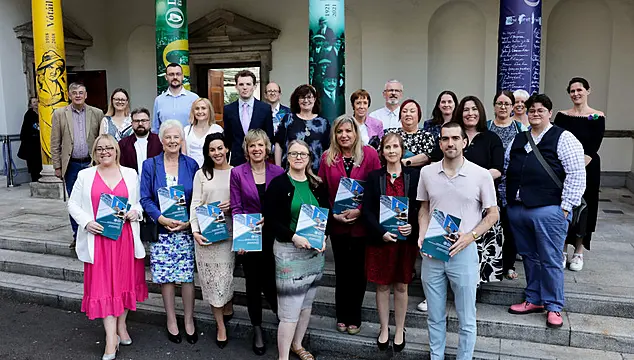A referendum on the section of the Irish Constitution that refers to a woman’s “duties in the home” should be held in 2023, an Oireachtas Committee has urged.
The Oireachtas Joint Committee on Gender Equality today published its interim report on constitutional change, which recommends that a referendum be held next year on Articles 40.1 and 41 of the Constitution.
Article 41.1 states that the State “recognises the family as the natural primary and fundamental unit group of society, and as a moral institution possessing inalienable and imprescriptible rights”.
It goes on to add in Article 41.2: “In particular, the State recognises that by her life within the home, woman gives to the State a support without which the common good cannot be achieved.
“The State shall, therefore, endeavour to ensure that mothers shall not be obliged by economic necessity to engage in labour to the neglect of their duties in the home.”
Launching the Committee report on Wednesday, Cathaoirleach Ivana Bacik said: “It has long been agreed that the way in which women and mothers are referred to in Article 41 is based on outdated gender stereotypes and should have no place in a constitutional text.
“In addition, the definition of family in the same Article has long been criticised for being insufficiently inclusive of diverse family forms in contemporary Ireland.
“The Committee therefore recommends that a constitutional referendum be held in 2023 to give effect to the Citizens’ Assembly recommendations on constitutional change.”
Gender-specific
The Citizens’ Assembly on Gender Equality previously recommended that Article 41.2 of the Constitution be deleted and replaced with language that is not gender-specific and obliges the State to take reasonable measures to support care within the home and wider community.
It also made two other recommendations on constitutional change: to refer explicitly to "gender equality" in the equality guarantee of Article 40.1, and to make the definition of family more inclusive in Article 41.
“Several alternative options for wording are set out in the report,” Ms Bacik said.
“The Committee has sought the response of the Government on the proposals put forward, and now seeks the views of interested stakeholders, citizens, and members of the public on these options.
“We will be publishing a final report at the conclusion of our term as a Committee and will return then to the question of constitutional change.
“Through this process and our ongoing work, we look forward to contributing to the strengthening of gender equality norms and policies generally.”
The Committee is due to publish its final report on all recommendations in December 2022.







